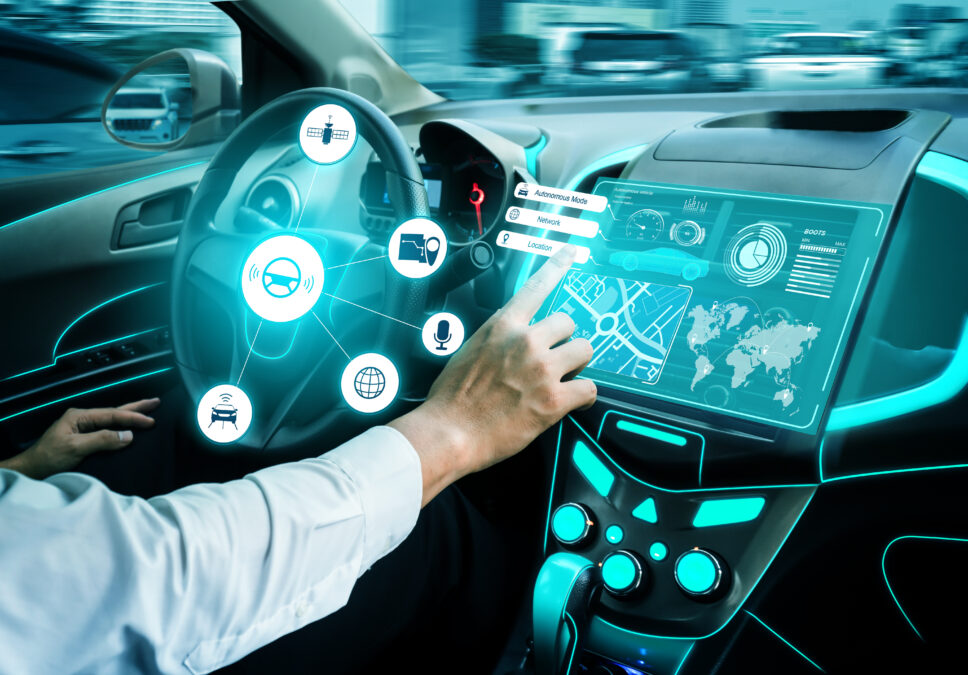The demands of consumers in many sectors have changed drastically over the past year, with transactions now being commonly completed online, while at home or out and about, as opposed to in store. This is no different in the mobility sector, a space that’s started exploring driverless vehicles, among other smart developments. Using data, brands are now able to put together unique, unified customer profiles in order to provide a more personalised service with more options. This encompasses steps on the customer journey, including leasing, insuring and vehicle registration, and in turn eradicates paperwork.
However, these changes are not evenly distributed across the mobility industry, and there is still a challenge for many brands in the form of bridging the gap between manufacturer and buyer.
Giovangabriele Tricomi, associate partner at Portaltech Reply, discussed the journey that the sector has undertaken over the years.
“Mobility wasn’t initially intended to be part of the automotive industry,” said Tricomi. “There was the automotive industry, which was around manufacturing and selling cars, and mobility and e-commerce were completely separate.
“15 years ago, if someone wanted to buy an SUV, the manufacturer didn’t know why you wanted an SUV, and the dealer was more focused on meeting their quota than delivering a personalised service.”
CRM and e-commerce solutions have been used by car manufacturers to leverage data insights from consumers, and establish a more direct selling model. Digital marketplaces cut the dealer, who previously acted as a middleman, out of the equation, allowing brands to gain more detailed user insights, faster.
“The dealer is still in place, but they’re playing a different role,” Tricomi continued. “Cars aren’t yet expected to be delivered directly from the manufacturer to the consumer straight away, so we still need the dealer.
“Dealers have started developing their own e-commerce solutions, due to dealing with multiple brands and often having second hand vehicles that they need to be able to sell in a more efficient way.”
Tricomi went on to state that while this hasn’t put an end to the automotive sector’s relevance, a wider, smarter concept of mobility is being put in place, powered by innovative solutions, to facilitate transactions from anywhere.
E-commerce founders highlight the main pain points of running a fast growth business
Evolution of ownership
Research conducted by Reply, which ultilised the company’s Sonar Trend Platform, found that the concept of owning a car is changing. More flexible ownership terms, including renting and subscription models, are becoming more prevalent, which enables more options for consumers. These new concepts are proving to be increasingly attractive, due to those looking for a new vehicle to invest in having various needs in mind beyond long-term ownership.
“We used to think that we need to have a car, and on average families have two cars: a big car for day trips, and a small car for the city,” said Tricomi.
“But when you look into car usage, families, especially younger families, realise that they don’t always need a car, and may only need to use it monthly.
“The concept of on-demand services for cars, including the possibility of renting the same car if you wish, has led to manufacturers exploring direct renting models, which can be facilitated by e-commerce solutions.”
This can be successful by integrating the user’s current living situation and the types of cars they have acquired in the past, as well as considering suitable distribution.
“You don’t want to make just a couple of vehicles available to a population of half a million,” Tricomi explained.
Mobility beyond vehicles
Reply’s research also found that the trends towards connected and autonomous vehicles has changed the service needs of car and fleet owners. While discussing this trend, Tricomi explained how the term ‘mobility’ can be applied to consumers, as well as vehicles.
He said: “You can now be a passenger on a bus, and brands can reach out to you offering promotions on products. Mobility in this context can be extended to the automotive industry, because you will soon be able to interact with brands while you’re travelling in your car.
“You could be sitting in a Tesla car, for example, without needing to have your hands on a steering wheel. You would likely be looking at the news on a screen, and at some point you’ll get a promotion from a nearby shop.
“If you want that product, you can complete the transaction from your car while it’s travelling to the shop, and then pick up the product when you arrive. That’s one of many aspects of the mobility concept.”
Due to this trend, according to Tricomi, the car is set to take on the role of an e-commerce marketplace, and the challenge standing between this concept and success is ensuring that the right technology and connectivity can be supported.
How Portaltech Reply is disrupting mobility
To meet the need for a strong e-commerce infrastructure for mobility consumers, Portaltech Reply looks to bring together e-commerce, marketing and insights in order to build customer experience solutions. With the aid of SAP CX, capabilities for buying, selling and renting cars are brought together in one unified platform, which eradicates silos.
Meanwhile, customer profiles show when the user has both bought and rented in the past, which provides a single view of the customer and their needs. This, according to Tricomi, allows manufacturers to stay ahead of the competition, better serve customers, and extend the customer lifecycle.
“We believe that SAP CX is a stronger technology than its competitors, because you can package the solution you want and accelerate the process,” said the Portaltech Reply associate partner.
“It’s no longer just about e-commerce, but about how to market your offering, and getting to know the customer through data.”
This article was written as part of a paid-for content campaign with Reply







